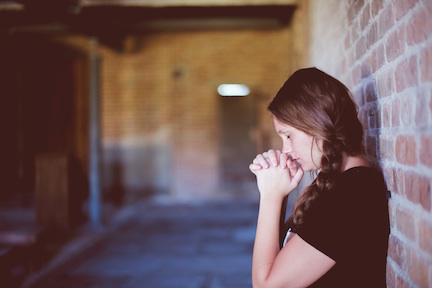Loving Yourself When You Are Angry
By Dr. Margaret PaulJuly 03, 2017
Anger is often a cover-up feeling and our anger has much information for us if we open to learning from it.
 I recently did a webinar on loving yourself when another person is angry and, surprisingly, I received questions on how to love yourself when YOU are the one who is angry. I’ve written numerous articles on how to take loving care of yourself with others’ angry, but not with your own anger.
I recently did a webinar on loving yourself when another person is angry and, surprisingly, I received questions on how to love yourself when YOU are the one who is angry. I’ve written numerous articles on how to take loving care of yourself with others’ angry, but not with your own anger.
Camille asked:
“How do I stop being angry over a broken childhood, an alcoholic father, and a mother who stayed with my drinking father?”
Anger (as opposed to outrage, which is the loving adult’s response to injustice and is a call to take loving action on your own or others’ behalf) indicates that there are ways Camille is abandoning herself. It’s easy for her to look to the past for the source of her anger, but her anger is actually current. Her inner child is angry at her for how she is treating herself that is like her parents treated her and treated themselves. Is she judging herself? Is she ignoring responsibility for her feelings? Is she turning to addictions like her father turned to alcohol? Is she making others responsible for her wellbeing and then blaming them when they don’t do what she wants? If she is abandoning herself in any of these ways, then her anger is about how she is treating herself.
Focusing on the past is often a way to avoid responsibility for ourselves in the present. We can learn from the past about our role modeling and how we got our false beliefs, but we can’t change the past. We have no control over what happened to us as we were growing up, but we have total control over how we treat ourselves today.
Helplessness - So Challenging...
Janine asked:
“I've noticed anger has been popping up when something small happens, something that triggers a big angry story. An example happened the other day when I received a credit card offer in the mail. While this seems benign (I could just throw the offer away and be in peace), I find myself telling a big story about how I am helpless over how my personal information is used. My anger usually happens when I have done everything in my power to stop these offers, like continuously submitting my personal information to OptOutPrescreen.com, which is designed to stop credit card companies from sending you offers. Thoughts?”
Janine is aware that this issue makes her feel helpless, but she isn’t aware that she is using her anger to cover over her helplessness. Helplessness is a difficult feeling, and it feels easier to get angry than to accept this very painful feeling. But if Janine were to compassionately embrace her helplessness and fully accept it, it would move through her and she wouldn’t be stuck with it.
Very often, our anger is a way to try to have a sense of control over something that we actually have no control over, such as other people, outcomes, and situations such as what Janine described. Yet, since the sense of control is an illusion, the anger and frustration continue. What the anger does have some control over is the feeling of helplessness. We can avoid this feeling with anger, but what is the price we pay for this avoidance?
If Janine had accepted her helplessness, she would likely have been over the situation within minutes, but in avoiding it, she may still be ruminating over it and still angry about it. When we fully and compassionately accept the reality of our helplessness over a situation, we can easily let it go and move on. But when we refuse to accept the reality, we may stay angry.
Loving yourself when you are angry is twofold:
- Exploring how you might be abandoning yourself
- Exploring what feelings your anger is covering up
I hope the next time you are angry, you love yourself by doing your Inner Bonding work to discover how you are abandoning yourself and what feelings you are avoiding.
Join Dr. Margaret Paul for her 30-Day at-home Course: "Love Yourself: An Inner Bonding Experience to Heal Anxiety, Depression, Shame, Addictions and Relationships."
Join IBVillage to connect with others and receive compassionate help and support for learning to love yourself.
Photo by Ben White
 Send this article to a friend
Send this article to a friend  Print this article
Print this article  Bookmarked 1 time(s)
Bookmarked 1 time(s)
| Related Articles |
|---|
| Embracing Our Dark Side: Healing Anger and Shame |
| Anger: To Control or To Learn |
| Anger Power |
| Are You Addicted to Anger? |
Comments
| Author | Comment | Date |
|---|---|---|
| Join the Inner Bonding Community to add your comment to articles and see the comments of others... | ||

Daily Inspiration
Perfectionism is a form of control. "If I am perfect, then I can have control over how others feel about me and treat me." Life becomes much easier and more fun when we let go of having to be perfect and allow ourselves to be human.
By Dr. Margaret Paul

 Share with Del.icio.us
Share with Del.icio.us Share with Digg
Share with Digg







